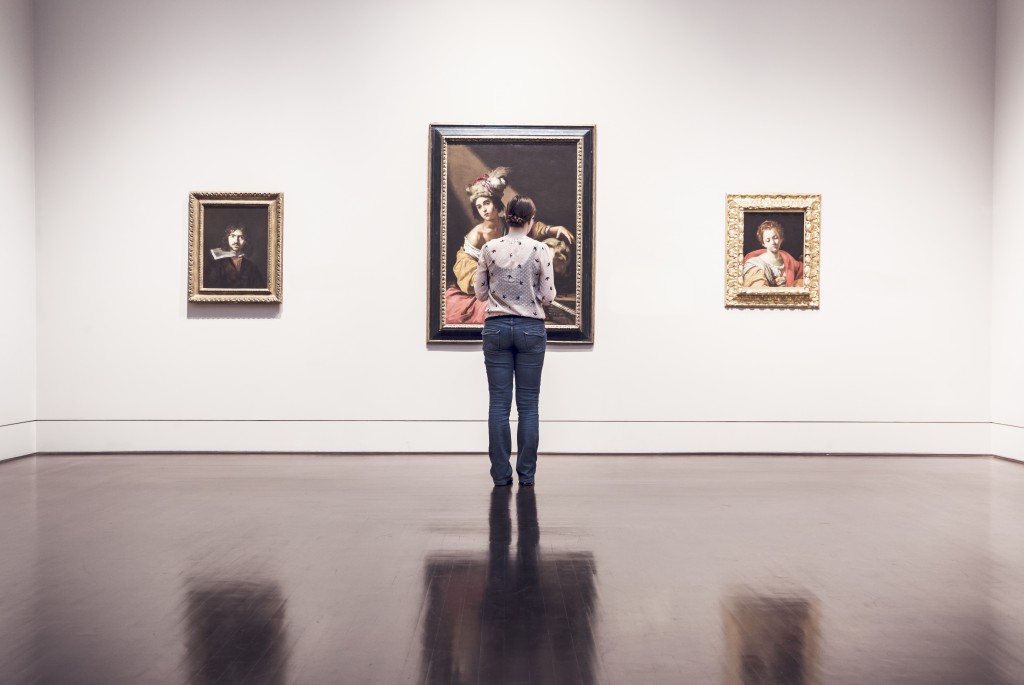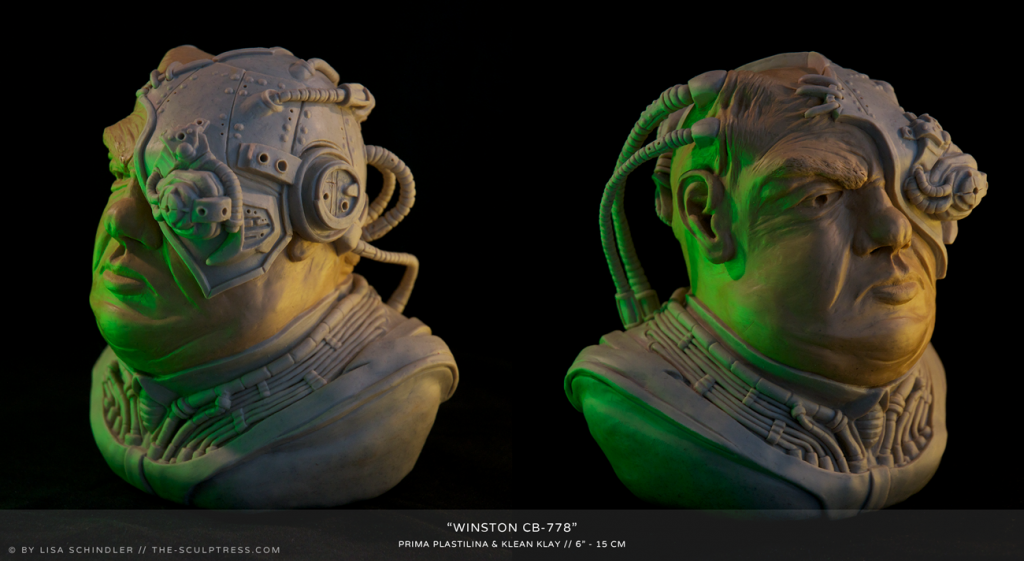“When I look at the incredible models that some Blender artists out there create, I feel depressed. It shows me how poor my skills are compared to them and I feel like I will never achieve their perfection.”
- Anonymous CG Cookie user

At CG Cookie, we respond to dozens of emails every day. Most of the time, we get questions about a user’s account or tutorial recommendations, but sometimes, a note comes through that goes much deeper and really sticks with us. This was one of them.
Kent Trammell, CG Cookie’s Blender expert, recognizes that most artists struggle with similar feelings at some point: “When I started learning 3D, I didn’t set out to create a cool character: I wanted to make a full movie! But after a few crash-course months I discovered just how difficult it would be to make a quality movie all by myself. I felt defeated.”
"Many young artists start going up the mountain, but inevitably they fall and get hurt," says Joe Chico, CG Cookie's concept artist. "They see the experienced artists who have already reached the top and looking up is so intimidating that it stops them from wanting to climb altogether."
Sounds familiar? Let’s air out this dark compartment and shed some light on why we harbor these feelings - and how to get the best of them.
Why do I feel like this?
In Social Comparison Theory, psychologists identify our need to compare with others as a tool for evaluating ourselves. This is not a bad thing; when practiced in moderation, comparison can boost our motivation and even increase our self-esteem.
However, too much comparison has the opposite effect: individuals who frequently compare themselves to others have been found to experience an increased sense of envy, guilt and regret.
Enter the notoriously competitive art community, amplified by social media with its frenzied quest for likes and virtual approval (does this look familiar?). All facts considered, it may not come as a surprise that a competitive setting has been shown to hurt intrinsic creativity.
Hacking Comparison Anxiety
“No matter what echelon of skill you reach, there will always be more to learn and artists who do it better than you," says Kent, "and that defeated feeling can endanger a creative future if you’re not careful. Rather, we should channel intimidation into motivation and inspiration.”
So how can you use the negative feelings as a tool of empowerment?
#1 Realize That you are Beyond Comparison
Out of the 8 billion people currently living on this planet, you are totally unique. There is nobody else with your exact skills, appearance, personality and experience. You have a singular mix of talents, interests, abilities and emotions which is infinitely complex and will never be replicated.
Bottom line: Realize that you will never be exactly like somebody else, because you are you. And that is a good thing.
#2 Recognize the Journey Ahead
“Every aspiring artist sees him- or herself confronted with the anxiety of never becoming as good as those they admire," says Lisa Schindler, CG Cookie's sculpting guru. "What I’ve learned though is that most people compare apples with oranges. If you are a beginner, you cannot compare yourself to those who have already spent years learning and refining their skill to be where they are today.”
Kent agrees: “That cliche saying is appropriate here: It’s not about the destination - it’s about the journey. This helps me realize that wherever I’m at in my skill-level I can also be satisfied and affirmed by what I’m learning, not just by the quality of my work or what I’m capable of.”
Bottom line: Remember that perfection means thousands of hours of practice and be confident that you will get there in your own time.
#3 Demystify the Process
Does looking at a beautiful piece of art make you feel intimidated by how perfect it is? You can take the mystery out of the creative process of other artists and visualize them working on the piece. They probably interrupted their work to unload the dishwasher, took the dog for a work or struggled with a particular tricky part of the process.
Lisa remembers a sculpture she created in 2011: “I found myself limited by the material I was using and really struggled with the surface clean up because both clays neither melted, nor did they react appropriately to the rubbing alcohol, which caused me quite a bit of frustration.” (Check out the gallery below the article for Lisa's full process!)
Yet, seeing the result, you might think it came about effortlessly.
 Bottom line: Even advanced artists are human, just like you. They learn through trial and error and have a fair share of failure along the way.
Bottom line: Even advanced artists are human, just like you. They learn through trial and error and have a fair share of failure along the way.
#4 Use the Art of Others to Learn
A beautiful piece of art can inspire you: study it closely and think about the artist’s thought process. Why did they create each line? How did they achieve the realism of their material? You can take envy out of the equation and use the artwork as a reference for your own next piece - voilá, you are removing any negative feelings, improving your own skill and generating creative energy.
Bottom line: Use the art of others to inspire and improve your own work.
#5 Thank the Other Artist
Next time you see a perfect piece of digital art, thank the person who created it.
The fact is, you need other artists out there. If you were the only 3D animator in the world, nobody would care. But with every amazing CG animation that appears in a movie, a commercial or on Facebook, your field is being promoted to the world and made more attractive.
Bottom line: Realize that your competitors are actually your friends, spreading the word and making your skillset more desirable.
#6 Embrace Comparison
If the yucky feelings of comparison anxiety overtake you, don’t try to fight or suppress them right away.
Feel every ugly bit of jealousy, envy or self-pity. Then ask yourself: What are these feelings telling me? Are they a reminder that I have been slacking on my efforts lately? That I should be doing more to grow? Or do I have unrealistic expectations and set myself up for disappointment? Often, comparison and envy are just the results of other, deeper feelings.
Bottom line: Follow your emotions to the root to see what they are really telling you. Once you understand them, you will be better equipped to master them.
#7 Remind Yourself of Why You Do It
Why did you decide to become an artist? Try to think back at what brought you to digital art in the first place. Was it the desire to outperform everybody else? Hardly. Most likely, it was your sense of joy at creating, at giving form to your imagination.
“There is always someone out there who’s better than you," says Lisa, "but if you have fun with something and are dedicated and willing to learn, all you need is a little patience and you’ll get there eventually.”
Bottom line: Rediscover the positive emotions that the process of creation brings you.
#8 Connect with Others
What sounds like more fun: getting frustrated and demotivated by seeing the amazing creations of other artists, or sharing in their joy?
If you look at each new artwork from a happy place, recognizing the skill behind it and learning from it, you are creating a positive momentum. Engage with the community, offer your insight and ask for feedback from others. You will find that you have many allies out there and will find it easier to view other artists as friends, not competitors.
Bottom line: Appreciate being a part of an amazing global community of like-minded creatives.
#9 Use Comparison to Motivate You
Kent knows that comparison can be a powerful motivator: “The internal pressure and intimidation is a very relevant part of advancing an artist's skills. When channeled right, it weeds the passionate from the nominally interested and fuels their motivation toward quality work and skills.”
How can you make sure you are harnessing this potential? “Even when I’m very prone to feeling like I have no skill and should quit when compared to better artists, I tend to transform feeling into motivation to keep improving,” says Kent. “If this approach speaks to you, get a healthy dose of Nike’s “JUST DO IT” attitude from Noah Bradley.”
Bottom line: Use your competitive drive to improve and perfect your methods every day.
#10 Apply the “Ghost Car” Technique
If you must compare, compare with yourself. Are you a better artist today than you were 1 year ago? CG Cookie’s Unity expert Jonathan Gonzalez likes to use a game analogy (what else?).
“Do you remember those racing games in which you race against your best time? You see the ghost car driving around, you compete and try to beat him. But in reality, it was you who previously controlled that car,” says Jonathan. “That is the only comparison you will ever truly need: with yourself.”
Happy Journey!
Lisa's Trial & Error Process of Sculpting a Cyborg
[gallery columns="2" size="medium" ids="165212,165213,165214,165215,165216,165217"]

 Bottom line: Even advanced artists are human, just like you. They learn through trial and error and have a fair share of failure along the way.
Bottom line: Even advanced artists are human, just like you. They learn through trial and error and have a fair share of failure along the way.


Totally agree - it's all about getting some perspective. Great that you've found the article helpful!
Great advice. I've been a professional for nearly 30 years. It's still very easy to slip into this unhelpful mode of thinking and I have to jolt myself back to reality and get some perspective. This will article will make it easier in the future.
Love this article!! It speaks volumes. Thank you so much!!
Great Article. it helps to get perpective from time to time. Thank you! :)
Oh man, this is just what the Dr. ordered. :)
That is great to hear! Thanks, Rex and keep on rocking ;)
Great stuff. :)
Wow, thank you so much for this. I was having the exact "down and out" feeling about my work, and this has really helped my :)
Cheers, Rex
hooraw~! i feels really good to see that I myself have improved in 4 years of drawing hardcore. It's going to be exciting to see where I am in the next 4 years.
Great and important article! Thank you :)